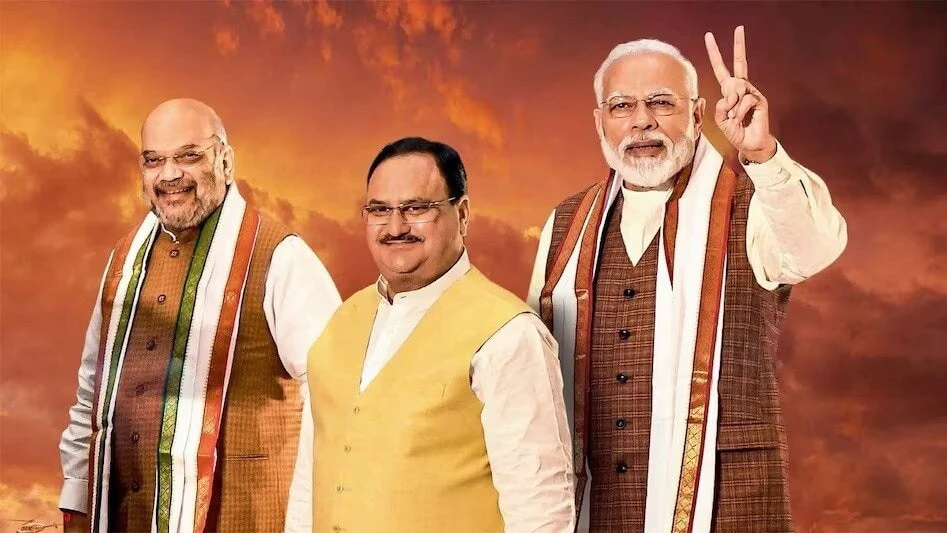The deadlock between the BJP’s top leadership and the Rashtriya Swayamsevak Sangh (RSS) over the selection of a new national president continues to linger, months after the current chief JP Naddas extended term technically expired.
Nadda’s term as BJP chief ended in January 2023, but the party extended his tenure until June 2024 to steer it through the Lok Sabha elections. Party insiders told India Today TV that the leadership could have sent a clear signal by appointing a working president in June, just as it had done in 2019 when Amit Shah was still party chief and JP Nadda was named working president ahead of his formal elevation in January 2020.
RSS insiders claimed that they have already communicated their views on the matter to the party’s top brass. The Sangh has laid down its criteria for the next president, insisting that the leader should be organisationally strong, without prioritising political messaging through the appointment. The RSS also wants the organisational changes to be accompanied by an overhaul within the government.
A key RSS meeting, its Akhil Bharatiya Prant Pracharak Baithak, will be held in Delhi from July 4 to 6, in the presence of RSS chief Mohan Bhagwat, general secretary Dattatreya Hosabale, and all six joint general secretaries. Sources indicated that the leadership of the BJP may hold discussions with RSS functionaries during this meet, potentially finalising the next party chief.
Senior BJP leaders said the new president will likely carry out a significant reshuffle within the party. Nearly half of the current national general secretaries could be replaced, making room for younger faces in key organisational roles.
The BJP’s parliamentary board, the party’s apex decision-making body, may also see the inclusion of heavyweight leaders to boost the organisation’s strength ahead of key state elections.
However, there is still no consensus between the BJP leadership and the RSS on the choice of president, insiders said. The party’s constitution requires that elections be conducted in at least 19 states before the national president can be formally elected. So far, only 14 state units have completed the process.
Earlier this week, the BJP announced election officers for pending state unit polls – Kiren Rijiju for Maharashtra, Harsh Malhotra for Uttarakhand, and Ravi Shankar Prasad for West Bengal.
The party wants state-level appointments wrapped up first, especially in key states like Uttar Pradesh, Gujarat, Madhya Pradesh, Karnataka, Maharashtra and West Bengal, to convey a sense of internal consensus before the national leadership is decided.
In Uttar Pradesh, the selection process has been complicated by caste equations. Party sources said that discussions have taken place between Defence Minister Rajnath Singh and Chief Minister Yogi Adityanath on potential names. Suggestions have been sought for Dalit and OBC faces, but the final decision will rest with Amit Shah and Prime Minister Narendra Modi.
Names doing the rounds for OBC representation include Animal Husbandry Minister Dharmpal Singh and Union Minister BL Verma, both from the Lodhi community. Former Union Minister Sadhvi Niranjan Jyoti and Rajya Sabha MP Baburam Nishad are also reportedly being considered. For Dalit representation, former Union Minister Ram Shankar Katheria and MPs Vidyasagar Sonkar and Vinod Sonkar are among the names under discussion.
In Karnataka, former Chief Minister BS Yediyurappa wants his son BY Vijayendra to retain the post, banking on the crucial Lingayat vote bank. But a section within the party believes Vijayendra lacks his father’s wide appeal among the Lingayats and that infighting under him has hurt the party. Alternatives being considered include Sunil Kumar (an OBC) and C T Ravi (a Vokkaliga and former national general secretary).
In Maharashtra, current working president Ravindra Chavan, a Maratha, is tipped to be formally elevated. His proximity to Deputy Chief Minister Devendra Fadnavis strengthens his case.
West Bengal remains tricky. Incumbent Sukanta Majumdar is also a Union Minister, so the leadership must decide if he can step down from his ministerial role to focus solely on the party. Other contenders include Rajya Sabha MP Shamik Bhattacharya, who has gained importance within the party’s Delhi circles. State leader Suvendu Adhikari is keen on the job, but the RSS reportedly remains sceptical due to his TMC roots. Names of women leaders like Locket Chatterjee and Agnimitra Paul are also being discussed, as the party considers a woman face to take on Mamata Banerjee’s TMC in next year’s polls.
In Madhya Pradesh, balancing the state’s complex caste matrix is proving equally challenging. With OBCs, SCs and STs constituting over 70 per cent of the population, the leadership is cautious in picking a candidate who can consolidate support and counter the Congress.
Tribal leaders like Gajendra Patel, Faggan Singh Kulaste and Sumer Singh Solanki, as well as Dalit leaders like Lal Singh Arya and Pradeep Lariya, are under consideration.
Chief Minister Mohan Yadav is an OBC, making it less likely that an OBC will be picked for the state president’s post, but the name of Kavita Patidar has emerged in discussions.
In Gujarat, the next state president is expected to be either a Patidar from Saurashtra or an OBC, keeping the region’s caste arithmetic and 2027 assembly elections in mind. Names like Jagdish Vishwakarma, Mayank Nayak and Devusinh Chauhan (OBCs), and Dilip Sanghani and Janak Patel (Patidars) are doing the rounds.
